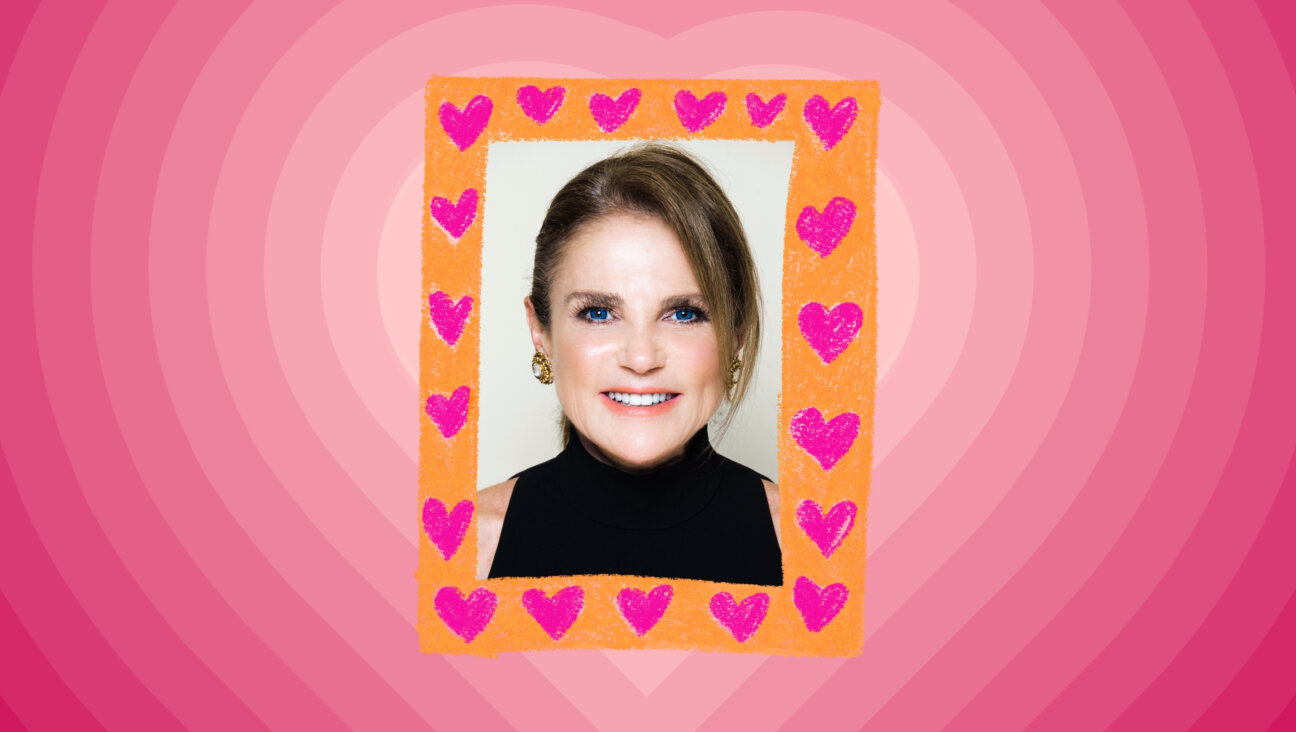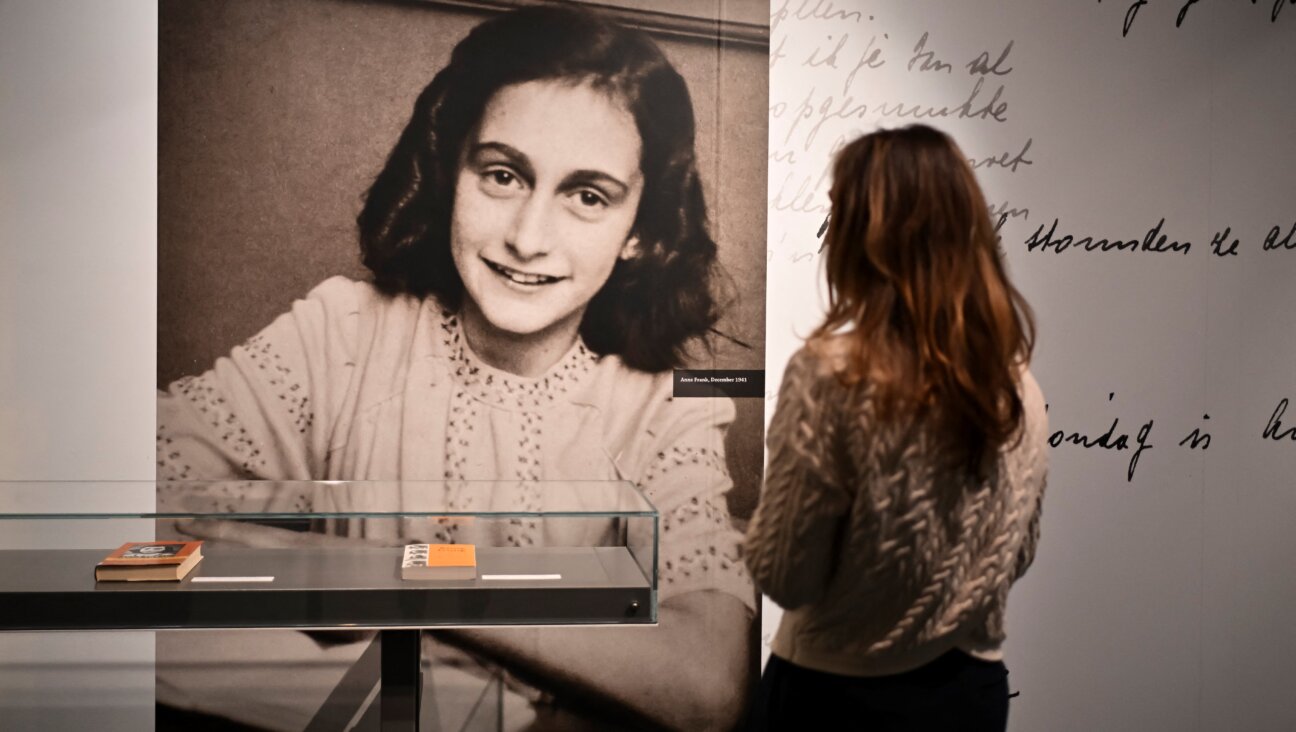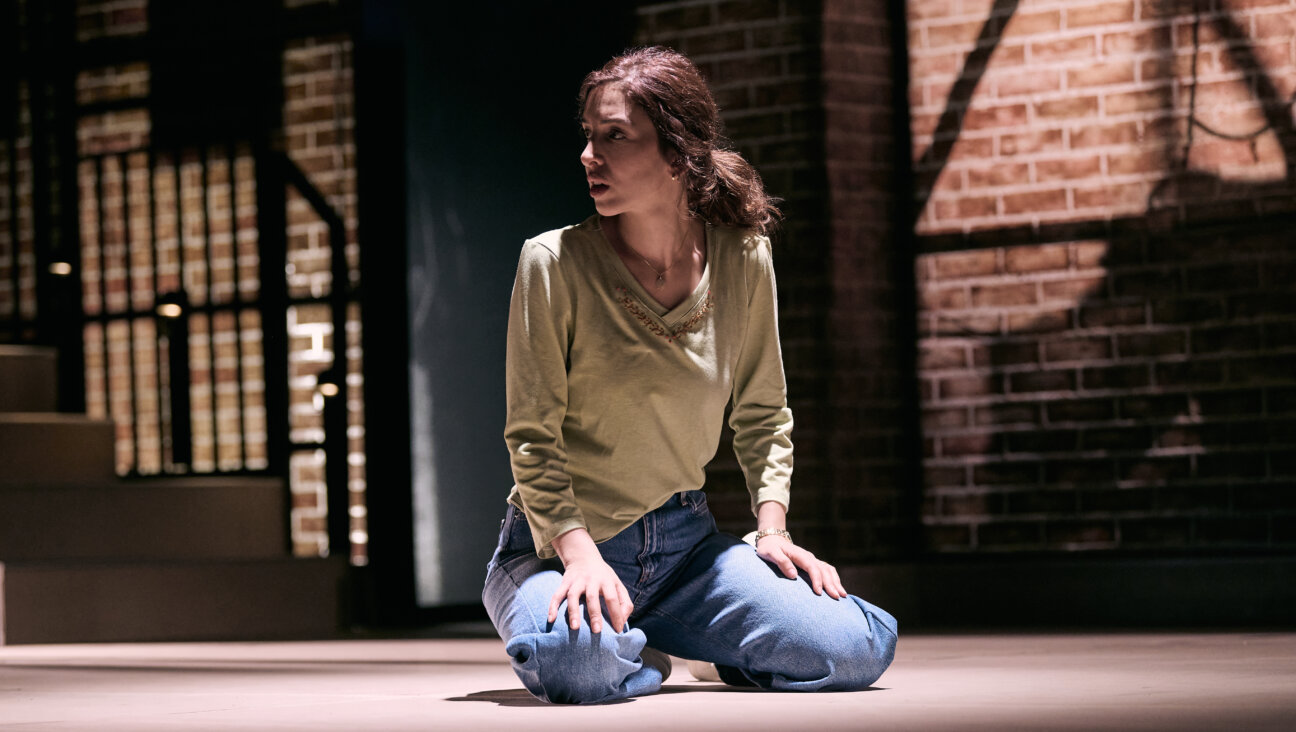Plan To Revive Biblical Sanhedrin Receives Boost
A nascent effort to re-establish the ancient rabbinical body of the Sanhedrin received a significant boost Monday when world-renowned scholar Rabbi Adin Steinsaltz agreed to serve as the body’s president.
The original Sanhedrin, the supreme legislative body in ancient Israel, comprised 71 leading scholars who issued rulings on a wide array of ritual and policy matters. Its members claimed to have received ordination from an unbroken chain of religious authorities dating back to Moses.
The institution is a highly charged symbol of biblical Jewish sovereignty, and its restoration has been controversial for decades, carrying an explicit challenge to the secular basis of the modern Israeli state. Some groups associated with the Sanhedrin restoration project have met in recent months to discuss the additional goal of restoring a Jewish monarchy and the building of a Third Jewish Temple on the Temple Mount in Jerusalem.
The new body was first convened this past October in Tiberias. But until now, its members reportedly have kept a low profile for fear of being criticized by segments of the Orthodox community that opposed the effort to reconstitute the Sanhedrin.
Steinsaltz, a Lubavitch Hasid known for his Talmud translation and for penning dozens of books aimed at wide Jewish audiences, was traveling in Moscow and could not be reached for comment. He was one of several big-name rabbis tapped Monday to serve as “representatives” of the Sanhedrin. According to Arutz Sheva, the right-wing Israeli news agency that first reported on the election, those rabbis include Yoel Schwartz, who helped found the Israeli army unit Nachal Haredi — that attracts the most devoutly Orthodox settlers — and Rabbi Nachman Kahane, brother of the late rabbi Meir Kahane, who advocated the forced expulsion of Arabs from Israel and the territories.
The new body has already put forth a number of rulings regarding key issues in Israel.
In March, it issued a ruling against the government’s disengagement plan, saying that it “is in direct contradiction to the Torah of Israel, and is null and void.” It asserted that “future governments of Israel will have to re-conquer the areas in question” and “any Jew — including a soldier or policeman — who supports the uprooting, whether directly or indirectly… transgresses a large number of Torah commandments.”
The recently elected secretary of the new body, Rabbi Dov Stein, told the Forward that the process of re-establishing the Sanhedrin has taken 20 years. He said the current mix of rabbis has garnered the support of “a quarter of the traditional Jewish community living in Israel.”
Stein said the new body hopes to “unify the religious parties” and become the primary governing power in Israel. The members are still debating whether it would be best to maintain a democratic system or re-establish a monarchy ruled by a scion of King David (for which they are currently vetting candidates).
In the meantime, Stein said, the Sanhedrin is focused mostly on increasing its influence, through enjoining other leading rabbis to sign off on it and by developing religious courts to serve Jews as well as non-Jews.
Speaking of Steinsaltz, Stein declared, “My personal view is that he is the biggest rabbi all over the world now, in spite of the fact that the supreme-Orthodox rabbis” would disagree with that assertion.
“He has several advantages that other rabbis do not,” including his familiarity with “multiple languages” and “secular knowledge” — both requirements for a Sanhedrin leader laid out by medieval Jewish philosopher and legal authority Rabbi Moses Maimonides, Stein said. In addition to his religious credentials, Steinsaltz holds a mathematics degree from Hebrew University [THE HEBREW UNIVERSTIY OF JERUSALEM?].
An Arutz Sheva article this week asserted that “due to concerns that external pressure would be brought to bear upon individuals not to take part in the establishment of a Sanhedrin, the names of most participants have been withheld up to this point, upon the request of the Sanhedrin’s spokesmen.” However, the article made a statement regarding the addition of its seven elected leading members: “It was concluded that the Sanhedrin has become strong enough for its members to be able to withstand criticism.”
Gauging the new body’s influence among the Israeli Orthodox is difficult. The Forward was unable to obtain comment from any leaders there [IN THAT SECT?]. The constituencies of the member rabbis themselves — especially Steinsaltz — are sizable. But in the month since the new body was created, it has been more liable to draw snickers than praise.
Yaakov Katz, who has reported extensively on the Sanhedrin project for the Jerusalem Post, told the Forward that generally the initiative has been dismissed as the efforts of “right-wing extremists.” The election of Steinsaltz, he acknowledged, “gives the Sanhedrin some legitimacy” ” because “he’s known around the world, and he’s apolitical.”
Katz noted that leading rabbis such as Ovadya Yosef, former Sephardic chief rabbi, and Yosef Shalom Elyashiv, the most respected ultra-Orthodox religious authority, have not endorsed the endeavor; but, he added, that organizers take the fact that they have not discounted it to be proof of the effort’s legitimacy. Katz said that the Sanhedrin’s political goals are unlikely to occur, as “the religious parties don’t want to be associated with extremism” and “the secular public is not interested.” Even among the body’s most likely constituents — religious nationalists — support for the new Sanhedrin “would be marginal.”
Orthodox leaders in America said they were mostly unaware of the Sanhedrin’s doings. Rabbi Tzvi Hersh Weinreb, executive director [EXECUTIVE VICE PRESIDENT?] of the Orthodox Union, told the Forward that “in general terms, I think that a Sanhedrin is a body that really has to reflect — I’m talking just in real-politik terms, not religious terms — has to reflect a broad spectrum of Orthodox Jews.”
“From what I know, this does not,” Weinreb said, adding that the effort “seems premature, almost ridiculously premature” and “unless I’m really mistaken, this group is very far from a consensus, and it’s related to a specific group and a specific ideology that is nowhere near even a broad swath of the Jewish spectrum.”
“Unless you’ll tell me that 60% to 80% of the Jewish population thinks this is a good idea,” then it need not be taken seriously, Weinreb said.
Weinreb acknowledged that Steinsaltz’s involvement “puts it in a different picture,” but said this development simply means added that the new body is “something to find out more about.”
not be reached for comment. He was one of several big-name rabbis tapped Monday to serve as “representatives” of the Sanhedrin. According to Arutz Sheva, the right-wing Israeli news agency that first reported on the election, those rabbis include Yoel Schwartz, who helped found the Israeli army unit Nachal Haredi — which attracts the most devoutly Orthodox settlers — and Rabbi Nachman Kahane, brother of the late rabbi Meir Kahane, who advocated the forced expulsion of Arabs from Israel and the territories.
In March, the new body issued a ruling against the government’s disengagement plan, saying that it “is in direct contradiction to the Torah of Israel, and is null and void.” It asserted that “future governments of Israel will have to re-conquer the areas in question” and “any Jew — including a soldier or policeman — who supports the uprooting, whether directly or indirectly… transgresses a large number of Torah commandments.”
The recently elected secretary of the new body, Rabbi Dov Stein, told the Forward that the process of re-establishing the Sanhedrin has taken 20 years. He said the current mix of rabbis has garnered the support of “a quarter of the traditional Jewish community living in Israel.”
Stein said the new body hopes to “unify the religious parties” and become the primary governing power in Israel. The members are still debating whether it would be best to maintain a democratic system or re-establish a monarchy ruled by a scion of King David (for which they are currently vetting candidates).
In the meantime, Stein said, the Sanhedrin is focused mostly on increasing its influence, through enjoining other leading rabbis to sign off on it and by developing religious courts to serve Jews as well as non-Jews.
Speaking of Steinsaltz, Stein declared, “My personal view is that he is the biggest rabbi all over the world now, in spite of the fact that the supreme-Orthodox rabbis” would disagree with that assertion.
“He has several advantages that other rabbis do not,” including his familiarity with “multiple languages” and “secular knowledge” — both requirements for a Sanhedrin leader laid out by medieval Jewish philosopher and legal authority Rabbi Moses Maimonides, Stein said. In addition to his religious credentials, Steinsaltz holds a mathematics degree from the Hebrew University of Jerusalem.
An Arutz Sheva article this week asserted that “due to concerns that external pressure would be brought to bear upon individuals not to take part in the establishment of a Sanhedrin, the names of most participants have been withheld up to this point, upon the request of the Sanhedrin’s spokesmen.” However, the article made a statement regarding the addition of its seven elected leading members: “It was concluded that the Sanhedrin has become strong enough for its members to be able to withstand criticism.”
Gauging the new body’s influence among the Israeli Orthodox is difficult. The Forward was unable to obtain comment from any Israeli Orthodox leaders. The constituencies of the member rabbis themselves — especially Steinsaltz — are sizable. But in the month since the new body was created, it has been more liable to draw snickers than praise.
Yaakov Katz, who has reported extensively on the Sanhedrin project for the Jerusalem Post, told the Forward that generally the initiative has been dismissed as the efforts of “right-wing extremists.” The election of Steinsaltz, he acknowledged, “gives the Sanhedrin some legitimacy” because “he’s known around the world, and he’s apolitical.”
Katz noted that leading rabbis such as Ovadia Yosef, former Sephardic chief rabbi, and Yosef Shalom Elyashiv, the most respected ultra-Orthodox religious authority, have not endorsed the endeavor; but, he added, that organizers take the fact that they have not discounted it to be proof of the effort’s legitimacy. Katz said that the Sanhedrin’s political goals are unlikely to occur, as “the religious parties don’t want to be associated with extremism” and “the secular public is not interested.” Even among the body’s most likely constituents — religious nationalists — support for the new Sanhedrin “would be marginal.”
Orthodox leaders in America said they were mostly unaware of the Sanhedrin’s doings. Rabbi Tzvi Hersh Weinreb, executive vice president of the Orthodox Union, told the Forward that “in general terms, I think that a Sanhedrin is a body that really has to reflect — I’m talking just in realpolitik terms, not religious terms — a broad spectrum of Orthodox Jews.”
“From what I know, this does not,” Weinreb said. He acknowledged that Steinsaltz’s involvement “puts it in a different picture,” but said this development simply means added that the new body is “something to find out more about.”
A message from our Publisher & CEO Rachel Fishman Feddersen

I hope you appreciated this article. Before you go, I’d like to ask you to please support the Forward’s award-winning, nonprofit journalism so that we can be prepared for whatever news 2025 brings.
At a time when other newsrooms are closing or cutting back, the Forward has removed its paywall and invested additional resources to report on the ground from Israel and around the U.S. on the impact of the war, rising antisemitism and polarized discourse.
Readers like you make it all possible. Support our work by becoming a Forward Member and connect with our journalism and your community.
— Rachel Fishman Feddersen, Publisher and CEO























